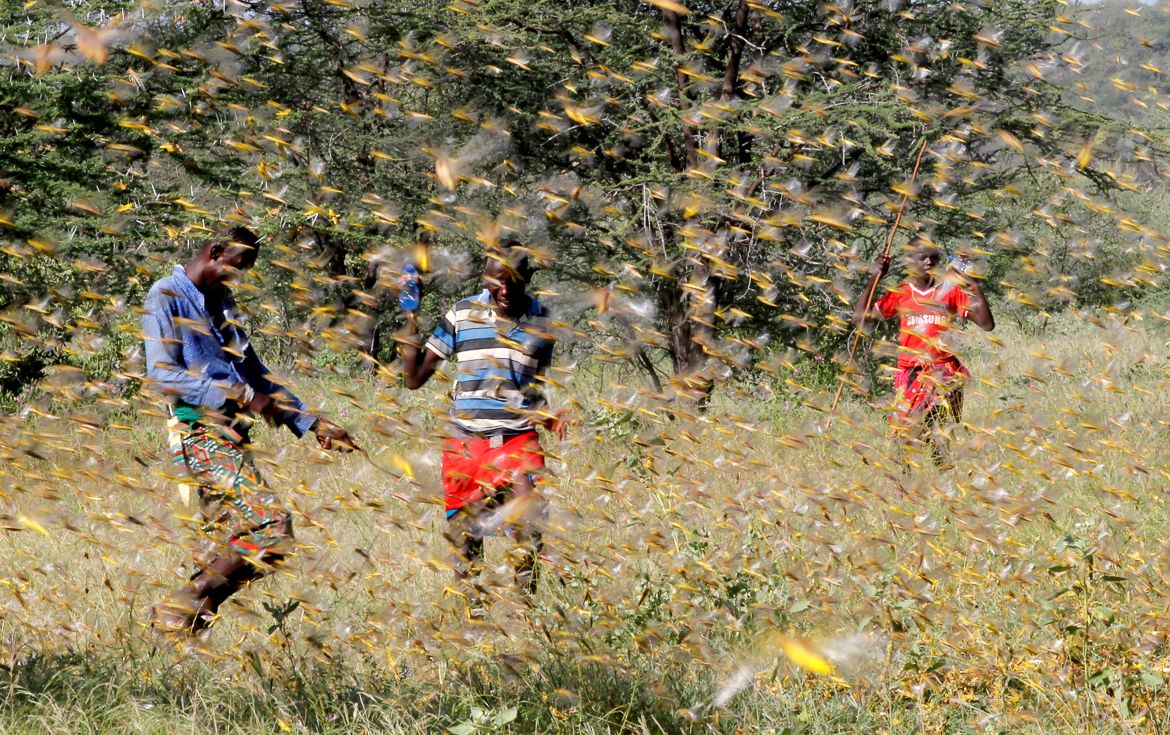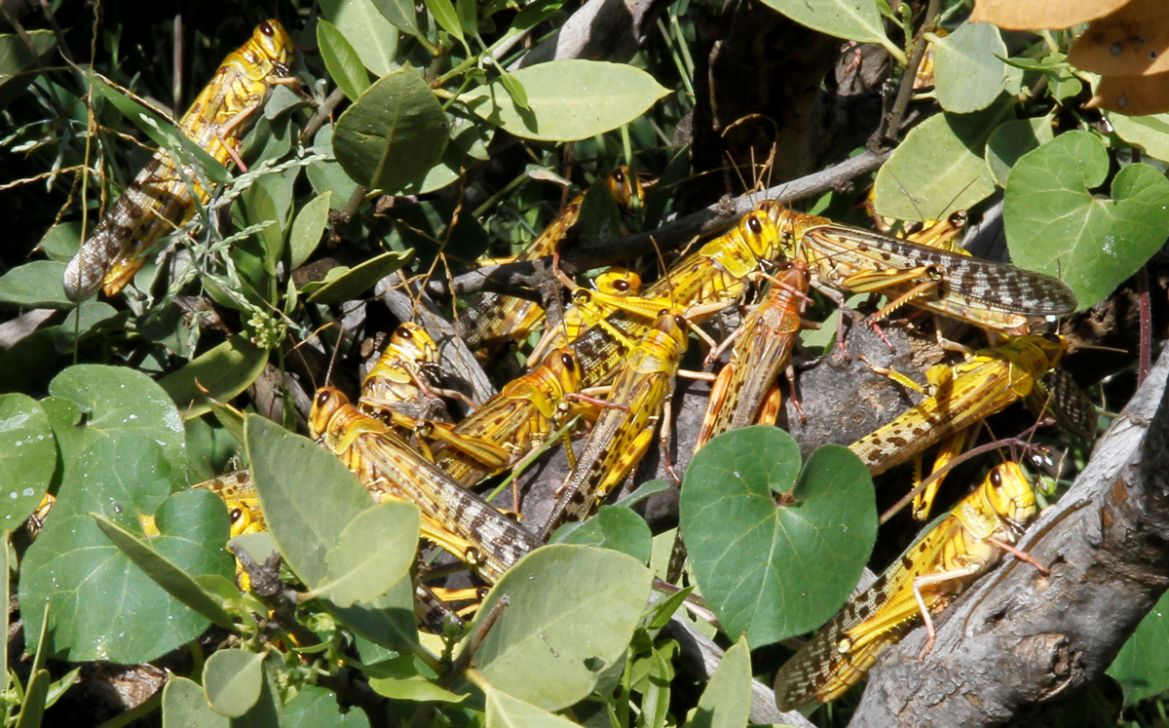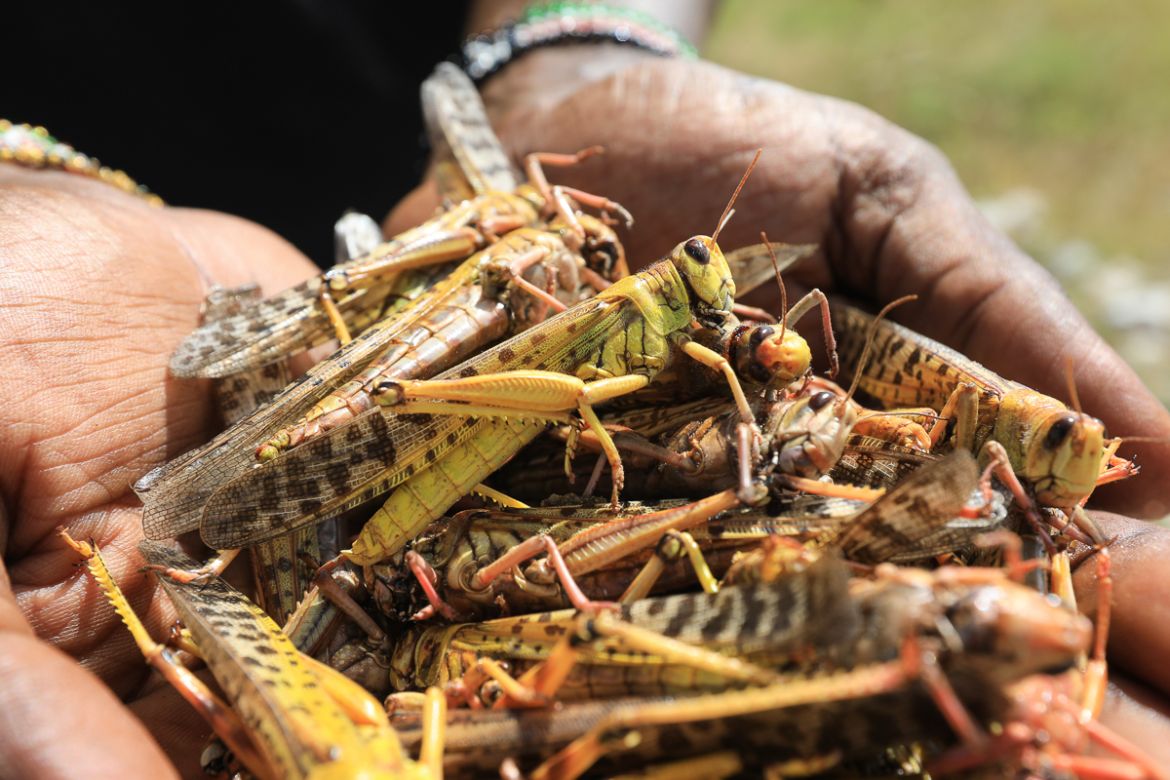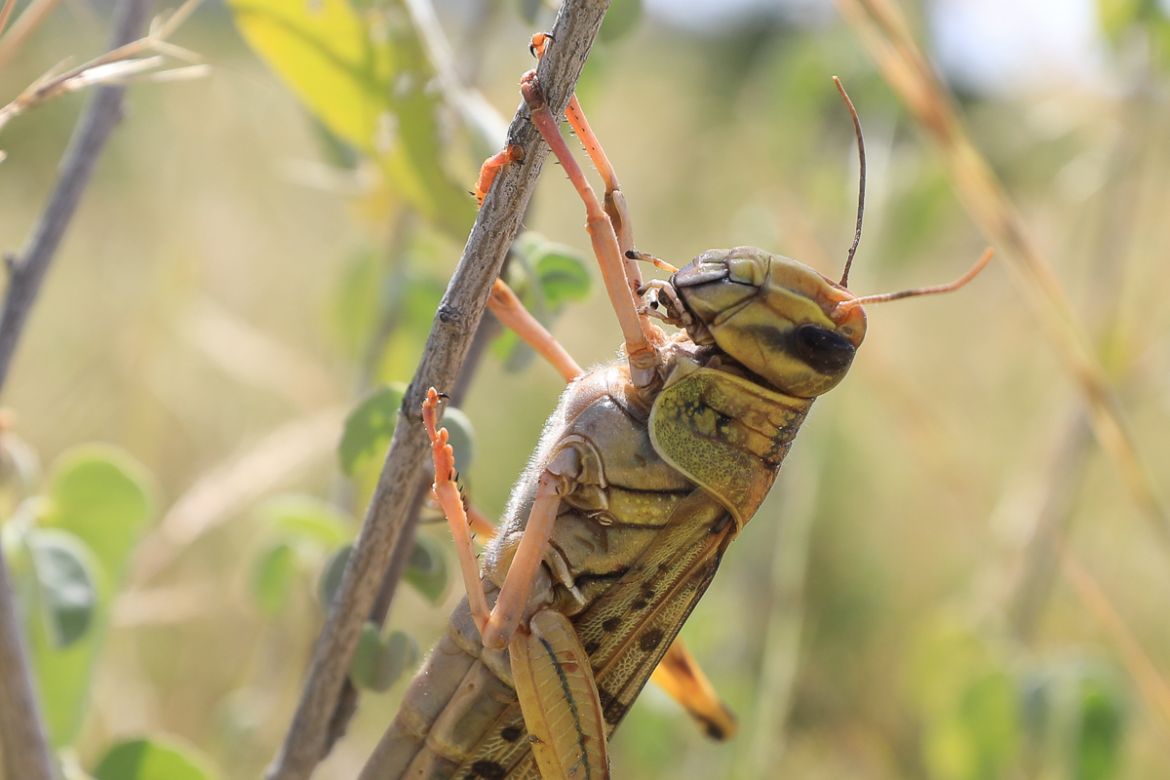In Pictures
In Pictures: Locust outbreak spreads across East Africa
Officials warn numerous swarms pose ‘unprecedented’ threat to food security and livelihoods in parts of the region.

A serious outbreak of locusts is spreading in parts of East Africa and posing an “unprecedented” threat to food security in some of the world’s most vulnerable countries, according to officials, with unusual climate conditions partly to blame.
Roughly the length of a finger, the insects fly together by the millions. They devour crops and destroy grazing plots, threatening food production and local economies.
An “extremely dangerous increase” in locust swarm activity has been reported in Kenya, the East African regional body reported this week. One swarm measured 60km (37 miles) long and 40km (25 miles) wide in the country’s northeast, the Intergovernmental Authority on Development (IGAD) said in a statement.
The outbreak of desert locusts, considered the most dangerous locust species, has also affected parts of Somalia, Ethiopia, Sudan, Djibouti and Eritrea. Parts of South Sudan and Uganda could be next, the IGAD warned.
The outbreak is making the region’s bad food security situation worse, according to the United Nations’ Food and Agriculture Organization (FAO), with hundreds of thousands of acres of crops destroyed.






